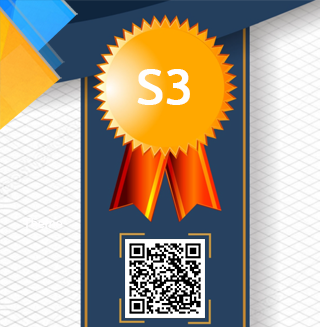Improving Reproductive Health Knowledge on Women Through Majelis Taklim
Meningkatkan Pengetahuan Kesehatan Reproduksi pada Wanita Melalui Majelis Taklim
DOI:
https://doi.org/10.25311/keskom.Vol5.Iss2.333Keywords:
woman, education council, religion of knowldege, reproductive healthAbstract
Reproductive health for women is important in building harmonious family quality. The widespread participation of women in religious and health knowledge will provide a large portion of human development as a whole. Increasing religious knowledge activities are routine things that are followed every week, this is aimed at strengthening Islamic and religious members of the education council.
Education council (majelis taklim) is a form of education that emphasizes to increase spiritual potential and forming students or worshipers to become human beings who believe, fear Allah and have noble character. Noble character includes ethics, character, and morals as manifestations of religious education. Increasing spiritual potential includes practicing, understanding, and planting religious values, as well as practicing those values in individual life or community collectives.
The purpose of this research to determine the level of participation of the education council in increasing religious of knowledge about reproductive health and knowing the level of participation of the education council.
The research method used descriptive qualitative by participatory action research (PAR) at education council in Banten, Indonesia and sampling technique by random sampling as a member of education council.
The summary of this research showed that the level of religious knowledge about the reproductive health of the assisted participants is good that it gives a psychological impulse to register for early detection of reproductive disease. The woman reproductive health can improve by education council participation.
Downloads
References
Agus Ahmad Safei, 2016. Development of Islamic Society Based on Majelis Ta’lim: A Study of the Shifting Role of the Majelis Ta’lim in West Java, American Journal of Applied Sciences 2016, 13 (9): 947.952. DOI: 10.3844/ajassp.2016.947.952
Ahmad Nurcholish, et, al, 2015. Seksualitas & Agama: Kesehatan Reproduksi Dalam Perspektif Agama-Agama. PT Elex Media Komputindo, Jakarta, ISBN: 979789286638, pp: 13
Dini Anitasari, Fatimah Hasan, Lely Nurohmah, Sri Wiyanti Eddyono, 2010. The Role of Religious Public Spaces in Transforming Private Issues into Community Issues. SCN-CREST and RAHIMA for research program WEMC, 2010. https://www.scn-crest.org/id/images/dokumen/Communalizing%20private%20issue%20with%20abstract-Majelis%20Taklim-WEMC2010-english%20copy.pdf (Accessed on December 17, 2018)
Emilia O, Yayi Suryo Prabandari dan Supriyati, 2008. Promosi Kesehatan Dalam Lingkup Kesehatan Reproduksi. PT. Pustaka Cendekia Press, Yogyakarta. ISBN: 9786023862788, pp:56
Kementerian Agama RI, 2012. Pedoman Majelis Ta’lim. Dirjen Bimas Islam dan Penais. Jakarta, Indonesia.
Marlene Lee and Jocelyn Finlay, 2017.The Effect Of Reproductive Health Improvements On Women’s Economic Empowerment A Review Through the Population and Poverty (PopPov) Lens, August, 2017.https://www.prb.org/wpcontent/uploads/2017/09/17246_POPPOV_Women_Empower.pdf (Accessed on December 17, 2018)
Notoatmodjo, 2010. Pendidikan dan Perilaku kesehatan. Cetakan 3. PT. Rineka Cipta, Jakarta, ISBN: 9795188690, pp:74
Notoatmodjo, 2012. Promosi kesehatan dan Perilaku Kesehatan. Rineka Cipta, Jakarta. ISBN: 9789790980327, pp: 34.
Widyastuti, 2009. Kesehatan Reproduksi. Fitramaya, Yogyakarta, ISBN : 789793734255, pp : 42





























